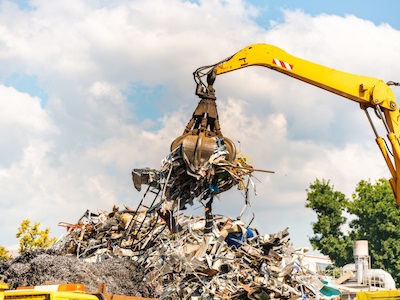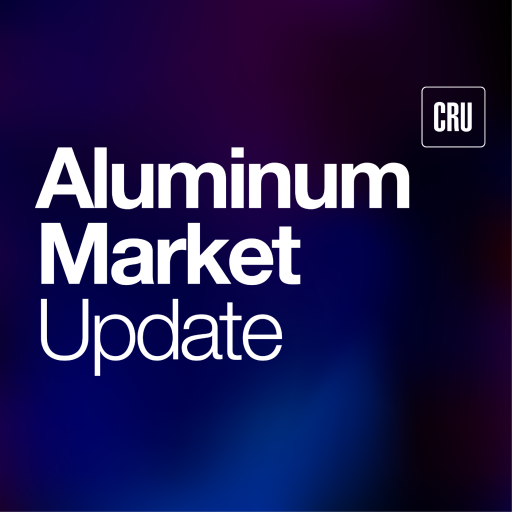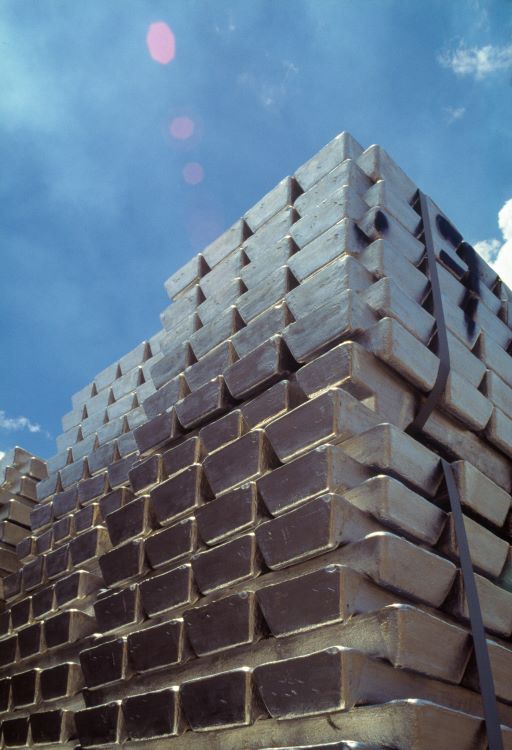Aluminum Scrap Markets

August 8, 2025
The fallout from the unprecedented movement in Midwest Premiums
Written by Greg Wittbecker
I had the luxury of being in Africa on safari for the entire month of July. Getting away from the day-to-day noise in the market afforded me a chance to step back and think about the market from a macro-perspective.
When the 50% tariff on aluminum was announced on May 31, the market did the math and determined replacement cost was going to be in the mid-$0.70s.
However, in June the market delivered extreme volatility, approaching $0.70 briefly before falling into the high $0.50s. There was a great deal of skepticism about:
- Would deals be cut with Canada, the Middle East or even the Russians to reduce the duty to 25% or lower?
- Were downstream consumers in a hurry to buy metal at record high?
- Were the transactions being concluded largely amongst a tight knit trader community and not representative of broad consumptive demand? and as extension of that…
- Did we not see profit-taking by traders who had correctly positioned themselves on the long side of Midwest Premiums and were now banking record profits?
One thing the market did seem to agree on coming out of the major industry conference in June was inventories had peaked and there was no incentive by either the Canadians or seaborne producers to bring fresh metal into the market. This meant that over the course of the summer, we would be facing a steady depletion of U.S. stocks. By fall, metal could get very tight.
On June 30, Midwest premiums were $0.64 per pound and now they have appreciated $0.72 per pound. We still are not trading full replacement, which I reckon to be $0.748 per pound at current LME cash and CIF USA port duty unpaid premium cost.
Conventional wisdom seems to be that the market finally resigned itself that an 11th hour reprieve for Canada or the Middle East exporters is not forthcoming and this 50% tariff is here to stay.
Canada was the market’s best hope for relief, but Canada’s decision to recognize a Palestinian state has angered President Trump and derailed immediate hopes for an aluminum deal.
Meanwhile, the Canadian producers have publicized their efforts to export more to Europe or sell more FOB production in Canada.
This reduction in Canadian supply may also be having an effect on the Midwest physical supply, and it will only get worse as we move forward.
Secondary effects: Value-added product surcharges and higher upcharges
The impact to the importers, both Canadian and seaborne suppliers, is amplified on their value-added product sales. Billet, foundry, and EC-grade rod carry upcharges to Midwest ranging from $0.10 to $0.25 per pound. Those upcharges are also subject to the 50% tariff and to date have not been fully recovered by the importers.
We have heard of mixed success on the part of the importers clawing back the additional duties through product surcharges. Initially, this was widely rejected by the buyers who had fixed upcharges set for the calendar year. However, those duties were so onerous ($0.05 to $0.125 per pound) that the sellers are demanding price adjustments on existing sales. On new business, upcharges are being marked up sharply….and we are hearing that for 2026, billet premiums may again be approaching $0.20 per pound. Foundry and rod will undoubtedly follow suit.
Scrap discounts to primary have blown out
During this advance on Midwest premiums, scrap discounts with regard to primary have widened. This was predictable. Every time either the underlying LME cash price rises or the Midwest premium rises, or a combination of the two, you are going to see scrap prices fail to keep pace.
Used beverage container (UBC) prices have barely budged, pricing at $0.99 per pound now compared to $0.975 per pound in early July. This has widened the spread by $0.03 per pound and placed UBC at an extremely attractive discount to Midwest P1020. UBC are trading around 53% of Midwest and that’s near historical lows. The major can sheet mills should be loading up on UBC now heading into the fall when seasonal declines in supply ensure.
Other scrap grades have followed suit, with 6063 bare extrusion scrap, or “press scrap” now priced at a discount of $0.22 to $0.25 per pound under Midwest – the discount having widened $0.015-$0.02 per pound in the past month.
This widening of the spread will have dramatic impact on scrap toll conversion fees for 2026.
Scrap tolling fees poised for big increase
The process of setting scrap tolling fees is straightforward. Scrap tollers, such as Matalco, Hydro or Nanshan compare the value of the scrap to the value of primary and secondary billet. That difference sets the toll conversion fee.
Currently, press scrap at $0.22 per pound discount to Midwest P1020 compared to billet, which today is valued at $0.10 per pound premium to Midwest. As mentioned earlier, the billet upcharge for 2026 is likely to go up, approaching $0.20 per pound over Midwest. That being said, it is not out of the question that toll conversion prices could rise to as high as $0.42 cents per pound. That compares to 2025 conversion prices between $0.20-$0.22 per pound.
This huge increase is all a function of the 50% primary tariff having blown out P1020 premiums to these record levels and sent scrap discounts plunging.
Scrap imports on the rise thanks to high absolute price NOT spread
Another consequence of our big rise in Midwest P1020 premiums and absolute price is the U.S. is now the top market for any exporter of scrap. We are witnessing the rare movement of European scrap to the U.S. now. Although our scrap to P1020 spreads are wide by U.S. standards, our absolute prices are still attractive enough to draw scrap in from the EU.
This has set off alarm bells in the EU. The EU was already worried about scrap leaving the EU27 ahead of pending carbon border tax implementation. These exports to the U.S. will raise the call for an export ban on aluminum scrap to prevent reverse carbon leakage (where low carbon metal in the form of scrap is exiting the market)
Why this matters
The skeptics about the durability of these high Midwest premiums are having a challenging time these days. It sure does not look like the Trump administration is going to cut Canada any slack on the 50% tariff. Total exemption seems an impossible dream and even getting a reduction to 25% may be a stretch. We still really do not understand what Trump wants from Canada in exchange for concession.
Could the Middle East countries be ripe for some deal? I think any deal on aluminum is tied to arms deals with the individual countries. Bear in mind in January 2020, Trump was ready to do a $23 billion arms deal with the UAE and had granted them exemption from Section 232 duties. The Biden administration scuttled both deals. So, the precedent is there, and I would not be surprised to see such large arms deals announced in exchange for some concessions on aluminum tariffs.
If there is any consolation for downstream buyers of aluminum today, it’s that widening scrap spreads have taken some of the sting out of the effect of Midwest. You can expect over time that every remelter in the market will be pulling out all the stops to raise their scrap incorporation rates, challenging their metallurgists and casthouse operations to optimize scrap.







